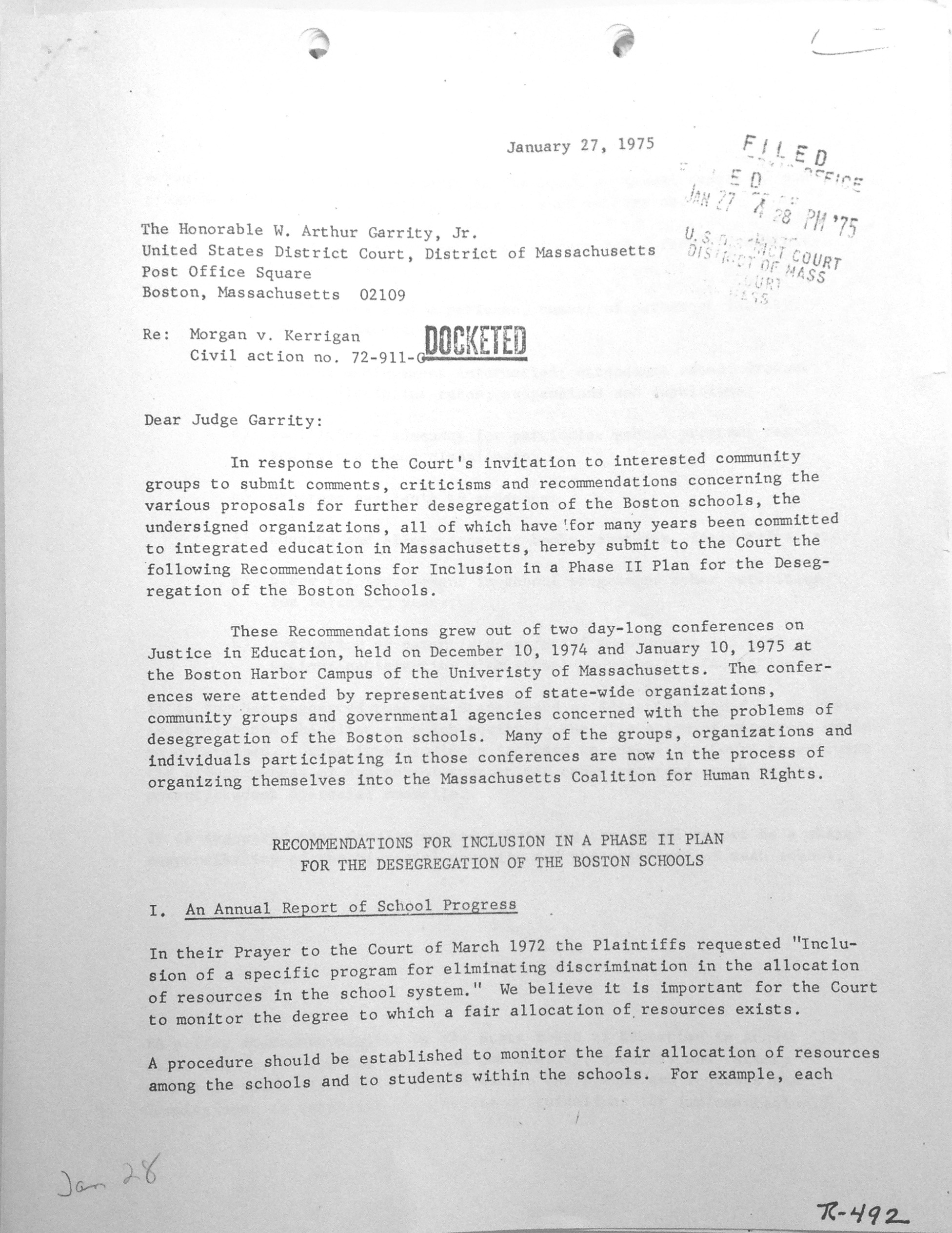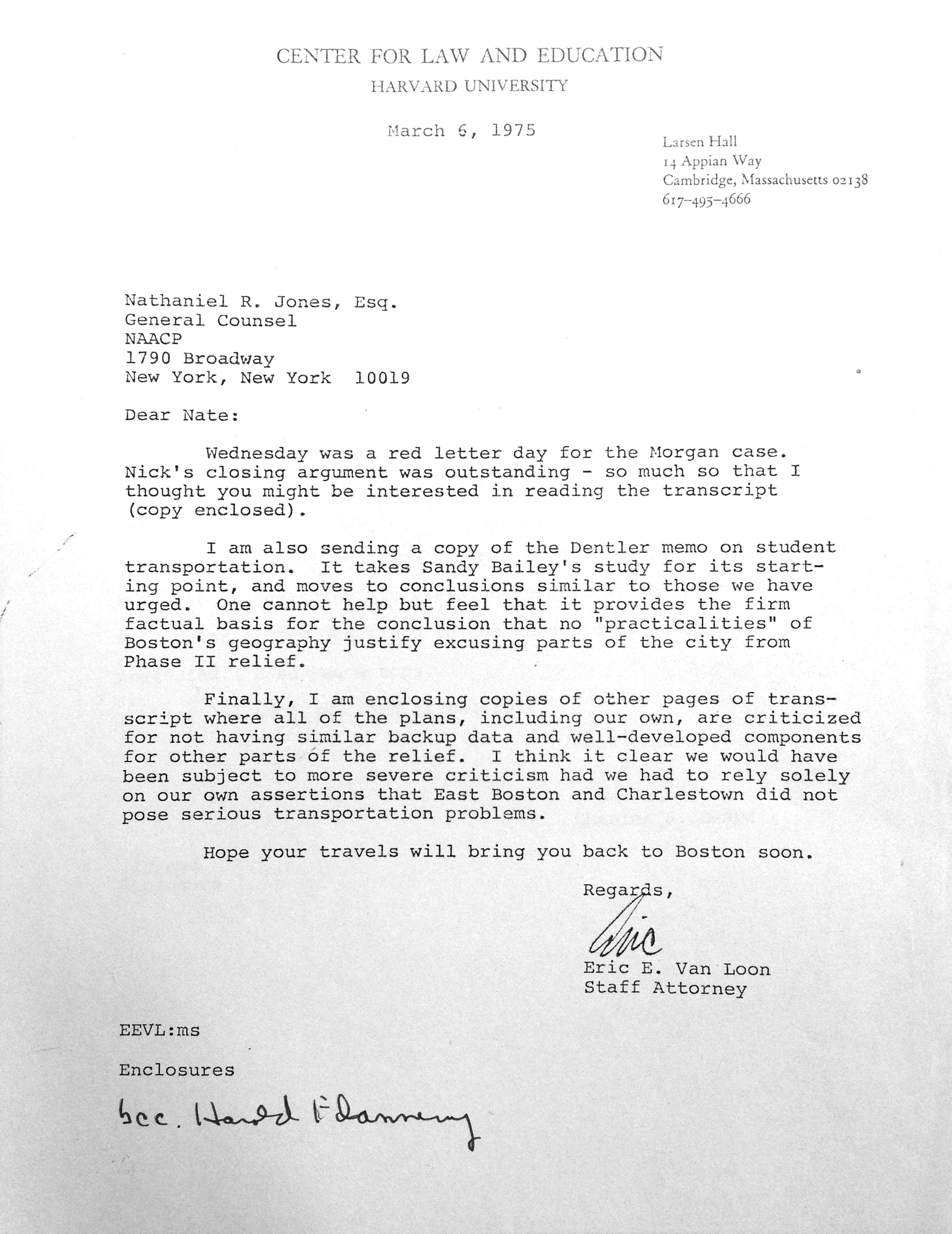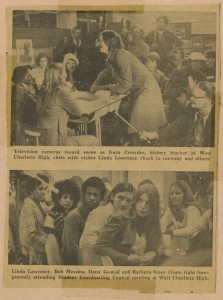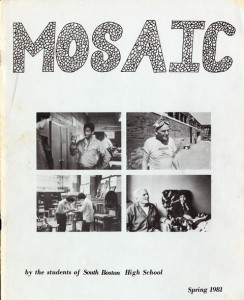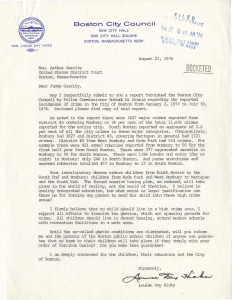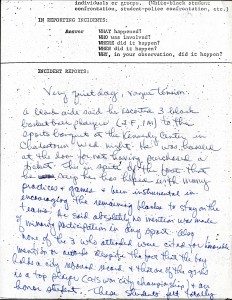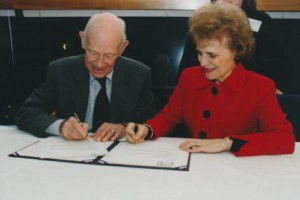
Photograph from the 1987 issue of Mosaic shows a young boy playing outside of a school in South Boston. The picture was take by South Boston High School student and photographer Tammy Lambright.
Author: Kayla Allen, Archives Assistant and graduate student in the History MA Program at UMass Boston

This photograph, taken by South Boston High School student and photographer Lorna Reid for the 1987 issue of Mosaic, features a high schooler playing on the steps of SBHS.
Juneteenth is coming up this Saturday, June 19th. It is a holiday that celebrates the true end to slavery in the United States (specifically in Galveston, Texas) in 1865, about two and a half years after Abraham Lincoln signed the Emancipation Proclamation. As I write this post, not only have the Senate and House both voted in favor of the Juneteenth National Independence Day Act, but President Biden has signed it into law. This holiday is about joy, hope, and love; it is a happy day, and we will be celebrating!
Still, we are in a period of turmoil in the United States, perhaps as we have been for centuries. Slavery has had a long-lasting impact on our communities. Generational trauma, poverty, and discriminatory policing are just some of the lingering effects of slavery that we continue to deal with every day. In the spirit of Juneteenth, people all over the country are working tirelessly to make things better for the Black community and to address these symptoms of a pandemic long since “over.” One of the most important things we can do is love and support Black youth, especially in their pursuit of an education. There is still no end in sight to the racial segregation of schools in our cities. Black students are disproportionately living in poverty and attending schools that are underserved and under-resourced.

Self-portrait of Anthony Adams, student and photographer at South Boston High School, taken for the 1987 issue of Mosaic.
In Boston in the 1970s, there was a contentious, court-ordered process of desegregating the city’s public schools overseen by Judge W. Arthur Garrity. This was in an effort to address some of the after-effects of slavery and follow through with a desegregation ruling that had passed a decade before. Unfortunately but expectedly, this caused an immense number of problems. There was a large presence of white Bostonians that desperately wanted integration to fail. In addition, many students, especially high schoolers, did not want to go to a new school and ended up dropping out. It was a tumultuous, violent, and traumatic time, especially at schools like South Boston High School (SBHS).

Here, South Boston High School student and photographer Bethzaida Rivera took a picture of students in the back of an SBHS school bus for the 1987 issue of Mosaic.
In an effort to support their young people and help them heal, Harvard undergraduate Michael Tierney and several of his colleagues at South Boston High created a publication called Mosaic. It started out in 1980 as a book of poetry written by SBHS students and edited by poet-in-residence Kate Rushin. Over the next decade, it morphed and changed to fit the needs of the students. It was a way for these high schoolers to become invested in their community and get to know their peers. They wanted to learn and grow and find ways to overcome the negative reputation that SBHS had picked up during the violence of the “busing crisis.” With the guidance of professionals like Michael and Kate, South Boston High School students created something truly special. They learned about poetry, interviewing, writing, and photography. They created exhibits of their work. After the final issue was published in 1988, they even brought their photographs and stories to be displayed at the Boston Public Library. In Mosaic, there was sadness and trauma, but there was also healing. It brought some much-needed hope to the SBHS community.
University Archives and Special Collections at UMass Boston has digitized the full collection of Mosaic publications (view the finding aid). Going through them is at once moving and sweet. It’s something precious to look at the work of young students discovering their voices and learning that their stories are worth sharing.
In honor of Juneteenth and our fight for equity and liberation, I’ve selected a few pages for you to look at from the 1987 Mosaic publication Knowing the Light Will Come: Stories and Photographs by Students at South Boston High. If anything catches your eye, be sure to explore the rest of the digital collection.

If you’d like to learn more about the afterlife of slavery, a term coined by Saidiya Hartman, and its impact on our country today, there are many incredible resources out there for you to check out. This page from UC Berkeley is just one of the assets I’ve found in my research. The Atlantic also has a moving article about the Boston desegregation of schools in the 70s and its legacy, and graduate students from UMass Boston’s History and American Studies department put together some wonderful articles as well.
From the author: Personal dedication to the students at the Barack Obama School of Career and Technical Education in Milwaukee, Wisconsin.




